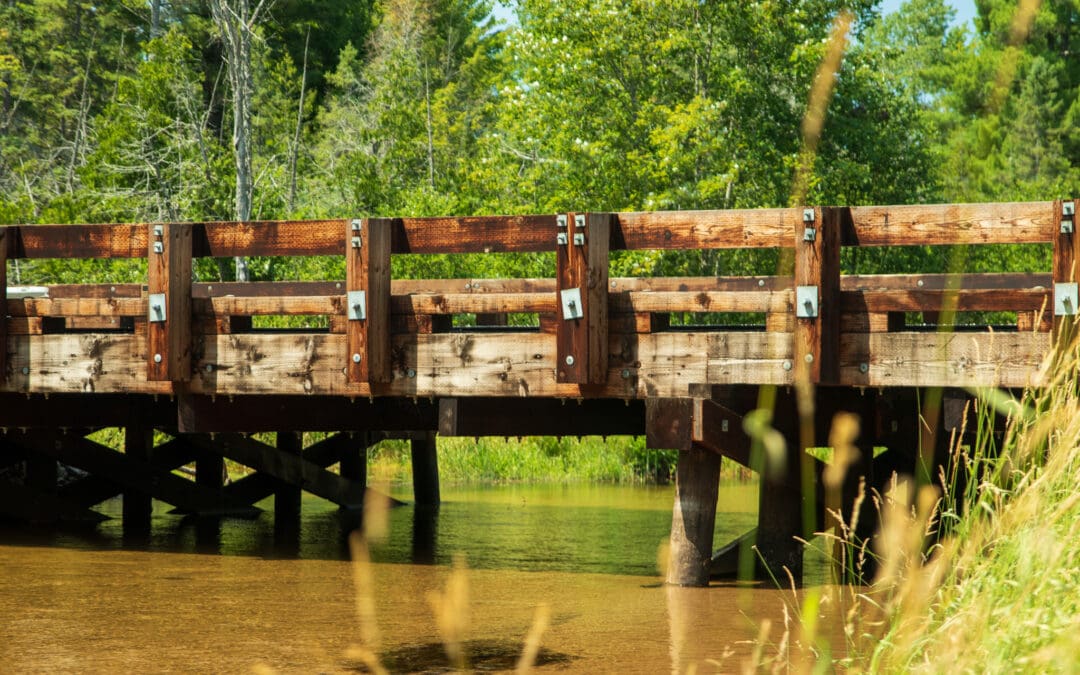A Brief History of RCPP:
Since its inception in 2014, the Regional Conservation Partnership Program (RCPP) has emerged as a significant force for conservation. Born out of bipartisan collaboration and led by Senator Debbie Stabenow (D-MI) and her colleagues, the 2014 Farm Bill initiated one of the most impactful conservation initiatives in recent history.
The local initiative, titled the Tribal Stream and Michigan Fruitbelt Collaborative, was one of the earliest RCPP projects and is demonstrating unprecedented success addressing conservation challenges at the intersection of agriculture and the environment. An initial $8 million investment in 2016, followed by an additional $4 million boost in 2019 and a subsequent commitment of $5.7 million in 2020, have fueled the innovative partnership.
Led by the Grand Traverse Band of Ottawa & Chippewa Indians, the Collaborative is overlaying stream restoration with permanent land protection on a large scale, more than four million acres across northern lower Michigan. The partnership boasts a diverse membership, including nineteen tribal, federal, state, and local government agencies and nonprofit organizations. Key contributors include the Conservation Resource Alliance, Grand Traverse Regional Land Conservancy, and the Leelanau Conservancy. Together, they share a collective vision of safeguarding high-risk development areas, restoring pristine streams vital for tribal fisheries, and contributing to the overall protection of the Great Lakes.
Latest RCPP Award News:
In November, the Tribal Stream and Michigan Fruitbelt Collaborative secured a new award of over $20 million. This influx is a testament to the resounding success of an initiative, which so far has:
- Protected over 3277 acres of specialty-crop farmland and natural lands (22% forests, 7% wetlands, 49% active agriculture, 18% grass/hay)
- Removed 52 aquatic organism passage barriers
- Opened 290 miles of stream in multiple watersheds
The new award enables the collaborative to replace restricted stream crossings with new infrastructure, facilitating the movement of fish and other aquatic organisms. Additionally, it will fund the purchase of conservation easements, preventing agricultural and forested land from being developed for nonagricultural or non-forestry purposes.
Impact on Land:
To ensure the protection of vital groundwater and maintain the viability of crucial wildlife corridors, 3,700 acres of land will be placed under perpetual conservation easements. The easements will significantly limit development and preserve rainwater infiltration.
Impact on Rivers and Tributaries:
Collaborators have identified 29 problematic sites for restoration across northwest lower Michigan. Financial assistance and technical support from partners will contribute to implementing conservation practices at these sites. With approximately $3.2 million allocated for stream restoration work, the focus will be on enhancing the Jordan River, Pine River, Mitchell Creek, Manistee River, and other watersheds in northern Michigan.
Senior CRA Project Manager DJ Shook highlights, “This recent award is a strong testament to the maturity and trust among the partners in the Grand Traverse Region – we hit the ground running, came together, and delivered such strong results in the first rounds that NRCS came back to double their investment in this partnership.” CRA Executive Director Amy Beyer adds, “RCPP is a first-of-its-kind USDA program that allows local needs to drive local solutions. Senator Stabenow and her staff worked tirelessly and graciously allowed much input from northern Michigan in its crafting, which means this innovative approach to agriculture-related conservation can happen here and have a HUGE impact on the ground.” Beyer continues, “The five-year window lets us work very strategically with our partners, grow leadership and capacity for the future, and involve a broader range of landowners and communities.”
Read The Grand Traverse Band of Ottawa and Chippewa Indians (GTB) press release here.
For full RCPP award details and to learn about the program’s nationwide impact, visit here.

